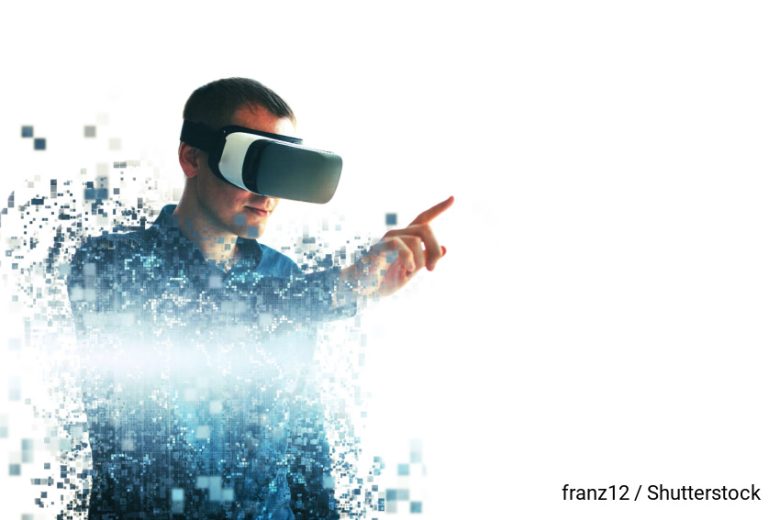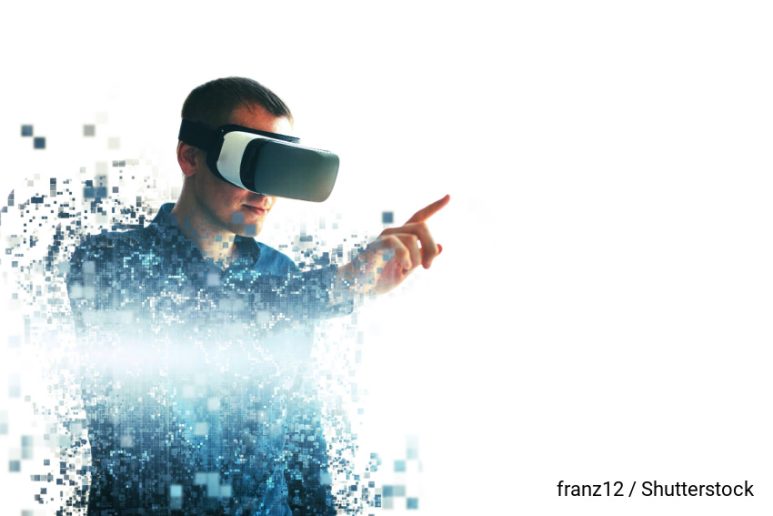By Anmol Irfan
In early 2023, attorney Manar Waheed, who’s part of the Meta Civil Rights team came up with the idea to create a space that highlighted the community aspect of Islam and her own experience as a Muslim.
“I wanted to build something for my communities during Ramadan, so that they could have a safe space that was positive – where they could be in community and feel like something was built just for them. I also wanted to build something that helped educate others about Muslims and what it’s like to be inside a mosque, experience prayer or a sermon – even watch kids run around, get bored, point and laugh at each other. It’s a community; we are a community,” Waheed said, sharing the motivation behind her project.

The project, which focuses on two aspects, allows users to experience through VR (virtual reality) the Azaan, (call to prayer) and Friday prayers at the Islamic Society of Orange County in California, and a Khutbah – a sermon in the mosque. These sermons usually precede Friday prayers and marriage ceremonies, or follow Eid prayers, however, Khutbahs are just a way of preaching and don’t necessarily need to be linked to events.
The project was spearheaded by Waheed and her Muslim colleague Omid Yazdanshenas. It was filmed at a local community mosque, which in itself speaks of the importance of having diverse voices represented in places where decisions are being made. Had Waheed and Yazdanshenas not been a part of the Meta team, it’s quite likely that this project wouldn’t have existed. Authentic Muslim representation has often seemed slow or inadequate, because there are not enough Muslims making decisions behind the camera.
Still, not all Muslims seem to be fully on board with this kind of representation. While Shaykh Abdullah Mullanee, a teacher and founder of has a big online presence himself, he’s skeptical of relying only on mass projects as a means of representation and of technology replacing human interactions. While VR experiences are often cited as getting users as close to physical interactions as possible and with Meta even launching a VR space to visit religious sites including Mecca, Mullanee worries about decreasing physical connection as tech continues to take over our experiences.
“In the past you had to go somewhere to get access to a lecture – at most every few days – now we’re consuming it [Islamic content] all the time,” he says while adding that even though the quantity has increased, he feels quality of content has actually decreased.
The same concern applies to looking at how content created for mass audiences impacts diversity. Mullanee himself has often seen the benefits of drawing people to his content through his own social media presence. However, he worries that instead of seeing these efforts in diversity as a tunnel to draw more people towards more detailed content – it’s becoming a replacement for in-person events. “The problem with diversity, with this situation here, is if you’re constantly speaking to an audience that’s such a mass audience, you’re also self-censoring and that’s also not good,” Mullannee says while adding “if every single one of your sessions is for the masses, you’re not building people, you’re building lectures”.
Instead, he hopes that projects like this can become a gateway to more concentrated and focused content that delves into more detail. It is that attention to detail that attracted Waheed and her team to the Islamic Society of Orange County Mosque.
“The Islamic Society of Orange County (ISOC) where we filmed this experience was perfect: it’s a 50-year-old mosque serving over 10,000 congregants; there’s a school on site; a coffee shop; and when I got there, there was even a bouncy castle,” Waheed says.
Hassan Mukhlis, a board member at ISOC, says the reason the mosque has all these facilities is because the Imam, Dr Siddiqui, wanted to create a community space where Muslims feel proud of their identity. “Islam has so much more to offer than just a masjid,” he shares.
But many of these experiences often remain hidden and under-reported in lieu of the stereotypes that most people are far more familiar with. That’s why this project stands out. “My leadership at Meta deferred to me on what was appropriate and impactful for my communities and what others needed to know about us,” says Waheed, saying that Muslim leadership and Muslim insights without outside influence helped shape the project to be as well rounded as it was in representing Muslim lives.
Media representation is also hugely influential and Mukhlis says that a few days after Meta released its VR experience, the local newspaper published full front page coverage of the mosque’s Eid prayer. He is also hopeful there will be similar projects with Meta in the future because it is a chance for Muslims to tell their stories their way.
Despite his concerns, Mullanee agrees there are benefits of increasing media diversity, but also suggests ways to increase its impact. “Whoever is offering this should also offer office hours and should have an email where people can ask questions.”
Photo Credits: franz12 / Shutterstock

